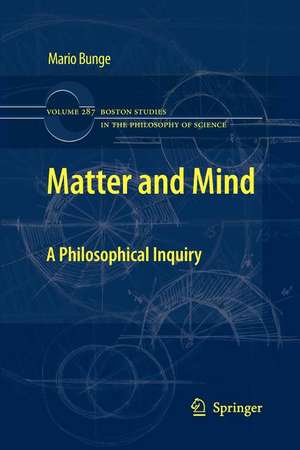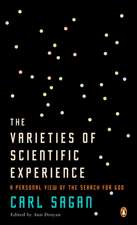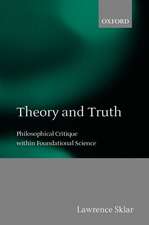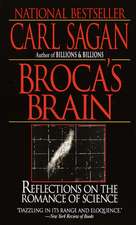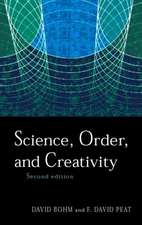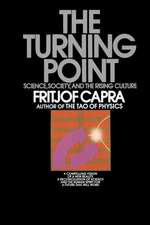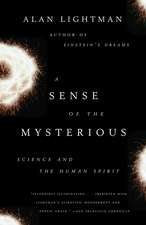Matter and Mind: A Philosophical Inquiry: Boston Studies in the Philosophy and History of Science, cartea 287
Autor Mario Bungeen Limba Engleză Paperback – 13 oct 2012
| Toate formatele și edițiile | Preț | Express |
|---|---|---|
| Paperback (1) | 1109.92 lei 6-8 săpt. | |
| SPRINGER NETHERLANDS – 13 oct 2012 | 1109.92 lei 6-8 săpt. | |
| Hardback (1) | 1116.09 lei 6-8 săpt. | |
| SPRINGER NETHERLANDS – 13 aug 2010 | 1116.09 lei 6-8 săpt. |
Din seria Boston Studies in the Philosophy and History of Science
- 18%
 Preț: 944.19 lei
Preț: 944.19 lei - 15%
 Preț: 646.75 lei
Preț: 646.75 lei - 15%
 Preț: 646.75 lei
Preț: 646.75 lei - 15%
 Preț: 699.28 lei
Preț: 699.28 lei - 18%
 Preț: 736.50 lei
Preț: 736.50 lei - 18%
 Preț: 706.87 lei
Preț: 706.87 lei - 15%
 Preț: 643.16 lei
Preț: 643.16 lei - 15%
 Preț: 650.69 lei
Preț: 650.69 lei - 15%
 Preț: 634.18 lei
Preț: 634.18 lei - 15%
 Preț: 642.68 lei
Preț: 642.68 lei -
 Preț: 391.40 lei
Preț: 391.40 lei -
 Preț: 383.33 lei
Preț: 383.33 lei - 18%
 Preț: 944.19 lei
Preț: 944.19 lei - 18%
 Preț: 955.56 lei
Preț: 955.56 lei - 15%
 Preț: 643.65 lei
Preț: 643.65 lei -
 Preț: 392.75 lei
Preț: 392.75 lei - 18%
 Preț: 1229.10 lei
Preț: 1229.10 lei - 18%
 Preț: 1238.23 lei
Preț: 1238.23 lei - 18%
 Preț: 951.29 lei
Preț: 951.29 lei - 18%
 Preț: 1223.25 lei
Preț: 1223.25 lei - 18%
 Preț: 1225.79 lei
Preț: 1225.79 lei - 18%
 Preț: 1226.42 lei
Preț: 1226.42 lei - 18%
 Preț: 1236.82 lei
Preț: 1236.82 lei - 15%
 Preț: 644.49 lei
Preț: 644.49 lei - 18%
 Preț: 1231.78 lei
Preț: 1231.78 lei - 15%
 Preț: 644.30 lei
Preț: 644.30 lei - 18%
 Preț: 957.62 lei
Preț: 957.62 lei - 18%
 Preț: 1222.49 lei
Preț: 1222.49 lei - 18%
 Preț: 947.50 lei
Preț: 947.50 lei - 18%
 Preț: 1833.95 lei
Preț: 1833.95 lei - 18%
 Preț: 1227.99 lei
Preț: 1227.99 lei - 18%
 Preț: 947.35 lei
Preț: 947.35 lei
Preț: 1109.92 lei
Preț vechi: 1353.57 lei
-18% Nou
Puncte Express: 1665
Preț estimativ în valută:
212.39€ • 222.31$ • 176.77£
212.39€ • 222.31$ • 176.77£
Carte tipărită la comandă
Livrare economică 31 martie-14 aprilie
Preluare comenzi: 021 569.72.76
Specificații
ISBN-13: 9789400732964
ISBN-10: 9400732961
Pagini: 340
Ilustrații: XVIII, 322 p.
Dimensiuni: 155 x 235 x 18 mm
Greutate: 0.48 kg
Ediția:2010
Editura: SPRINGER NETHERLANDS
Colecția Springer
Seria Boston Studies in the Philosophy and History of Science
Locul publicării:Dordrecht, Netherlands
ISBN-10: 9400732961
Pagini: 340
Ilustrații: XVIII, 322 p.
Dimensiuni: 155 x 235 x 18 mm
Greutate: 0.48 kg
Ediția:2010
Editura: SPRINGER NETHERLANDS
Colecția Springer
Seria Boston Studies in the Philosophy and History of Science
Locul publicării:Dordrecht, Netherlands
Public țintă
Upper undergraduateCuprins
Matter.- Philosophy as Worldview.- Classical Matter: Bodies and Fields.- Quantum Matter: Weird But Real.- General Concept of Matter: To Be Is To Become.- Emergence and Levels.- Naturalism.- Materialism.- Mind.- The Mind-Body Problem.- Minding Matter: The Plastic Brain.- Mind and Society.- Cognition, Consciousness, and Free Will.- Brain and Computer: The Hardware/Software Dualism.- Knowledge: Genuine and Bogus.- Appendices.- Appendix A: Objects.- Appendix B: Truths.
Recenzii
From the reviews:
“Bunge provides a masterful survey of key ideas in physics and conceptions of matter including theories of relativity, quantum physics and thermodynamics, inter alia. Every page is an encyclopaedic survey of concepts, theories and their history and, therefore, the book defies easy summary. … Bunge’s belligerent, take-no-hostage style is a welcome change from the usual passionless treatises on these subjects. Bunge’s no-nonsense approach is to be commended … . the book is precisely because it engages deeply with most interesting intellectual issues.” (Peter Slezak, Science & Education, November, 2011)
“Bunge provides a masterful survey of key ideas in physics and conceptions of matter including theories of relativity, quantum physics and thermodynamics, inter alia. Every page is an encyclopaedic survey of concepts, theories and their history and, therefore, the book defies easy summary. … Bunge’s belligerent, take-no-hostage style is a welcome change from the usual passionless treatises on these subjects. Bunge’s no-nonsense approach is to be commended … . the book is precisely because it engages deeply with most interesting intellectual issues.” (Peter Slezak, Science & Education, November, 2011)
Textul de pe ultima copertă
This book discusses two of the oldest and hardest problems in both science and philosophy: What is matter?, and What is mind? A reason for tackling both problems in a single book is that two of the most influential views in modern philosophy are that the universe is mental (idealism), and that the everything real is material (materialism). Most of the thinkers who espouse a materialist view of mind have obsolete ideas about matter, whereas those who claim that science supports idealism have not explained how the universe could have existed before humans emerged. Besides, both groups tend to ignore the other levels of existence—chemical, biological, social, and technological. If such levels and the concomitant emergence processes are ignored, the physicalism/spiritualism dilemma remains unsolved, whereas if they are included, the alleged mysteries are shown to be problems that science is treating successfully.
Caracteristici
It offers a clear presentation of the current scientific views on matter and on mind, as well as their relevance to philosophy. It embeds the problems of matter and mind in a broad philosophical context. It adopts an inclusive materialist philosophy that avoids naturalist reductionism and makes room for spirituality and free will. It extols the role of philosophy in scientific research. It is clearly written, with plenty of examples, and mention of historical roots
